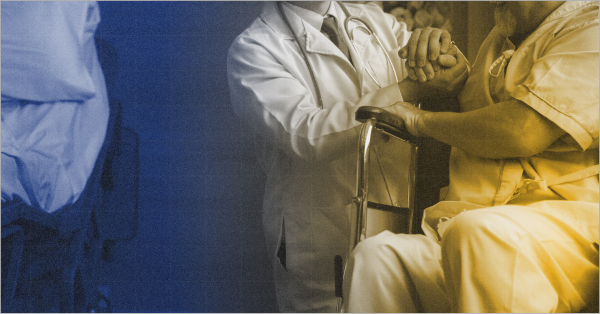Health Insurance has ceased being a ‘nice-to-have’ benefit and has indeed become an indispensable part of the contemporary world. The mounting healthcare expenses, unforeseen diseases and emergency healthcare can quickly deplete your finances. Although a Health Insurance Policy is designed to cushion you during such a financial shock, the manner in which you claim is equally crucial.
This is where the idea of a cashless claim in a Health Insurance Policy will fit in. It eliminates the hassle of having to pay at hospitals and lets you concentrate on what is more important, recovery. But what is a cashless claim? How does it work? We will break it down in steps.
Understanding Cashless Claims in Health Insurance
A cashless claim is an option that health insurers offer to their policyholders enabling them to seek medical care at specific hospitals without spending any money out-of-pocket. The hospital bill (not including non-covered costs) is directly paid by the insurer to the healthcare provider.
This is unlike in a reimbursement claim, where you pay the hospital bills yourself and later file a reimbursement claim form to the insurer to recover the money.
In simple words, a cashless claim implies that your insurer pays to the hospital; reimbursement means that you pay first and claim later. This little change makes a huge difference when it comes to emergency situations where it might seem impossible for the insured to organize large sums in real quick time.
How Does a Cashless Claim Work?
Making a cashless claim is not a big task. However, it is always good to know how to do it beforehand. This will help you avoid undue delays. It usually occurs in the following way:
Step 1: Select a Network Hospital
The cashless claims can be made only in network hospitals; those hospitals that are tied up with your insurance company or its Third-Party Administrator (TPA). It is always important to look at the list of the hospitals that the insurer covers.
Step 2: Present Your Health Card or Policy Details
When you are admitted to the hospital, you are required to provide your Health Insurance card or to disclose your policy information at the hospital admission desk. It is the first step that the hospital will take before initiating its efforts to coordinate with your insurer.
Step 3: Pre-Authorization Request
The hospital forwards a pre-authorization form to the insurer or TPA with the information about your treatment and estimated costs. This assists the insurer in determining the validity of the claim , as per the terms and conditions in your policy.
Step 4: Verification and Claim Approval
Your details are verified, the terms of the policy are checked and the claim is approved by the insurer or TPA. Approvals are often made expeditiously in case of emergencies.
Step 5: Settlement of Bills
Upon approval, the insurer directly pays the medical bills to the hospital (except in the case of consumables, service charges , non-medical expenses and other exclusions stated in the policy).
This flow will make sure that you do not have to go around organizing money, in an already stressful situation.
Types of Cashless Claims
Cashless claims can broadly be classified into two categories, depending on the nature of hospitalization.
- Planned Hospitalization
If you know in advance about a surgery, treatment, or procedure (like knee replacement or maternity delivery), you can opt for planned hospitalization. In this case:
- Inform your insurer at least 3–5 days before admission.
- Submit all required details in advance.
- The insurer approves the claim before you get admitted.
This proactive step saves time and ensures a smoother experience at the hospital.
- Emergency Hospitalization
Medical emergencies don’t wait for approvals. In such cases, you can avail emergency cashless hospitalization by:
- Informing the insurer/TPA within 24 hours of admission.
- Submitting policy details at the hospital immediately.
While approvals may take some time, most insurers expedite emergency requests to ensure timely treatment.
Benefits of Cashless Health Insurance Claims
Cashless claims offer a range of advantages that make them the preferred option for most policyholders.
- No Upfront Payment Hassles
The biggest advantage is obvious—you don’t need to arrange large sums of money at short notice. Your insurer takes care of the bills directly.
- Reduced Financial Stress in Emergencies
During critical situations, arranging cash can delay treatment. Cashless claims eliminate this roadblock, ensuring faster medical attention.
- Seamless Process
Since the hospital and insurer coordinate directly, the process is more convenient compared to reimbursement claims where you handle paperwork.
- Access to Wide Network Hospitals
Most leading insurers have tie-ups with hundreds or even thousands of hospitals across India. For example, ICICI Lombard has a network of over 7,500 hospitals, while Star Health covers more than 12,000 hospitals. This extensive reach ensures you can find a cashless facility near you.
- Builds Confidence in Health Insurance
Knowing that you won’t be burdened with upfront payments increases trust and makes health insurance feel truly protective.
Conditions and Limitations of Cashless Claims
While cashless claims are convenient, they do come with certain conditions.
- Only at Network Hospitals: You can’t use cashless facilities at hospitals not empanelled with your insurer.
- Pre-Authorization Requirement: For planned treatments, approvals are mandatory before admission.
- Partial Coverage: Certain costs like consumables (gloves, masks, syringes), registration charges, or service charges may not be covered.
- Policy Limits Apply: Sub-limits, waiting periods, and exclusions will still apply to cashless claims.
Understanding these terms beforehand avoids surprises at the hospital.
Common Reasons for Cashless Claim Rejections
Despite being designed for ease, cashless claims can sometimes get rejected. The most common reasons include:
- Treatment Not Covered: If the procedure isn’t part of your policy (like cosmetic surgery), the insurer won’t approve.
- Pre-Existing Diseases Not Declared: Non-disclosure of medical history often leads to rejection.
- Delayed Intimation: Informing the insurer too late can complicate approvals.
- Hospital Not in Network: Trying to avail cashless at a non-network hospital will automatically lead to rejection.
Being aware of these pitfalls helps you avoid unpleasant shocks during hospitalization.
Tips to Ensure Smooth Cashless Claim Approval
Want to make sure your cashless claim goes through without hiccups? Follow these practical tips:
- Choose from the Network: Always check if the hospital is part of your insurer’s network before admission.
- Notify Promptly: For planned treatments, inform the insurer well in advance; for emergencies, notify within 24 hours.
- Keep Documents Handy: Carry your insurance card, ID proof, and any medical records for quick verification.
- Know Your Policy: Be aware of your plan’s inclusions, exclusions, and sub-limits to avoid mismatched expectations.
- Maintain Transparency: Always disclose pre-existing conditions and past medical history honestly.
These simple steps can make your claim journey smooth and stress-free.
Final Thoughts:
Cashless claim in Health Insurance is not just another insurance procedure. Rather, it can be termed as a lifeline in one of the most vulnerable stages of life. It is also an assurance that you do not have to miss a treatment because of financial challenges and that you or your loved ones can get the medical treatment of your choice, in a dignified and peaceful manner.
The need to have Health Insurance with a good cashless facility is inevitable, given that medical inflation in India stands at about 14 percent yearly. It can be a scheduled treatment or an unplanned event but the fact that one can get hospitalized without scrambling to gather funds is what makes Health Insurance really worth the money.
Before choosing a policy, always check:
- The network hospital coverage offered by your insurer
- The speed of the approval process.
- The fine print of what is covered by the policy and what is not.
When health emergencies strike, the last thing you should be worrying about is paperwork and bills, right? With a cashless claim facility, you can leave all the money-handling to your insurer and concentrate on recovery.








